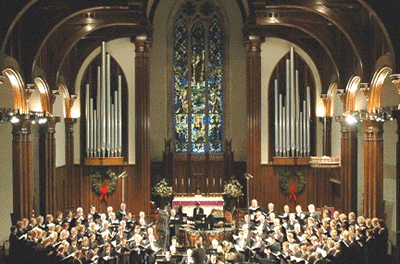The string quartet is perhaps the most “classical” and pure of all Western music ensembles. Since its inception in the eighteenth century it has served as the genre that many of the greatest composers have used to demonstrate their skills and also to sell music. It is no surprise that to this day the string quartet is the backbone of most chamber music series throughout the country, and the concerts often sell out. Quartets are sometimes used in popular music, in the background, to add a “classical” feel to a recording or performance. One of the most famous examples of this is Sir George Martin’s beautiful arrangement for string quartet backing up The Beatles in “Eleanor Rigby.”
Classical musicians’ improvisatory skills have steadily declined from the Baroque era to now and are at present almost non-existent. Organists are still expected to be able to improvise in some styles, at least to some degree, but most music conservatories don’t even acknowledge the need for this skill, which is deemed indispensable in most other musical cultures and in earlier Western music.
In 1985, there appeared on the scene a group that called themselves the Turtle Island String Quartet (TISQ), and they brought new life to this old formation. Classically trained and well versed in that world, their first goal was to incorporate what is often called “America’s only indigenous music” – i.e. jazz – into the string quartet structure. Their extensive knowledge of jazz history and artists along with their ability to improvise in that style helped them show that jazz is every bit as compatible with a standard quartet of strings as Haydn, Beethoven or Bartók.
The Carolina Union Performing Artist Series presented the TISQ on November 22 at Hill Hall on the UNC campus. I recall seeing them at the old Arts Center in Carrboro, and even though some of the members have changed, they still play with the same sense of excitement and joy that they did shortly after being formed. David Balakrishnan, first violin, and Mark Summer, cello, remain as two of the original members. Evan Price, second violin, joined the group in 1997. The newest member is Mads Tolling, a 23-year old violist from Denmark who is currently a student at the Berklee School of Music. On this occasion they were joined by Paquito D’Rivera, a dynamo of a clarinetist who, like the turtles, straddles quite comfortably the jazz and classical worlds. Regarding the TISQ, D’Rivera gave one of the most apt descriptions of their skills when he described them as “a combination of the Emerson String Quartet with the Count Basie Orchestra.”
The evening began with the TISQ alone. They have a special affinity for the music of Miles Davis, and they played one of their “hits” from an earlier Windham Hill recording, “Seven Steps to Heaven.” It was in this work that they really got to show off their jazz chops. Violinists Balakrishnan and Price swing as well as anyone, and they convincingly showed that violins are as capable as saxophones, guitars, pianos or any other instrument in playing jazz. Summer, on cello, has an amazing arsenal of unique pizzicato and percussive techniques. He can turn on a dime from playing beautifully crafted bowed lines to suddenly becoming the walking bass player or intricate tympanist. Violist Tolling, while certainly a great player, seemed the least convincing in his “improvised” solos. That is in quotes because they had the feel of being written out and lacked the spontaneity and abandon that the other three displayed. This will most definitely improve over time. The quartet has a sound engineer and the group is amplified but it is quite subtle and you would hardly notice but for the small monitors on stage.
Paquito D’Rivera has had a long distinguished career in his native Cuba and throughout the world. His virtuosity on the clarinet and his skills as composer and arranger are legendary. He has been touring with the TISQ the past few months, and this concert in Chapel Hill was the final one with them. D’Rivera, in addition to his extraordinary musicianship, is quite a showman. He has an exuberance and love of life that pours out of him. The addition of his brilliant clarinet playing on such classics as “You’ve Changed,” “Angel Eyes,” and especially Dizzy Gillespie’s “A Night in Tunisia” made this a very special evening.
The sacred and profane combined in a hilarious work by Balakrishnan named “The Girl from Pathetique” which, according to Evan Price, was their impression of what might have been composed had Tchaikovsky spent some time on the beaches in the Caribbean. Snippets of themes from the depressed Russian’s Symphony No. 6 mingled with “The Girl from Ipanema” is something that only these guys could pull off. As a tribute to their final concert with D’Rivera, the TISQ returned for an encore – “luckily, they knew one more song” according to Balakrishnan. This was the hauntingly beautiful “Stolen Moments,” a jazz classic by Oliver Nelson.
For those experiencing the TISQ for the first time, I’m certain that they have broadened their idea of what a string quartet can do and sound like. That is a good thing – there is room for all kinds of music in what is often called the perfect ensemble.












